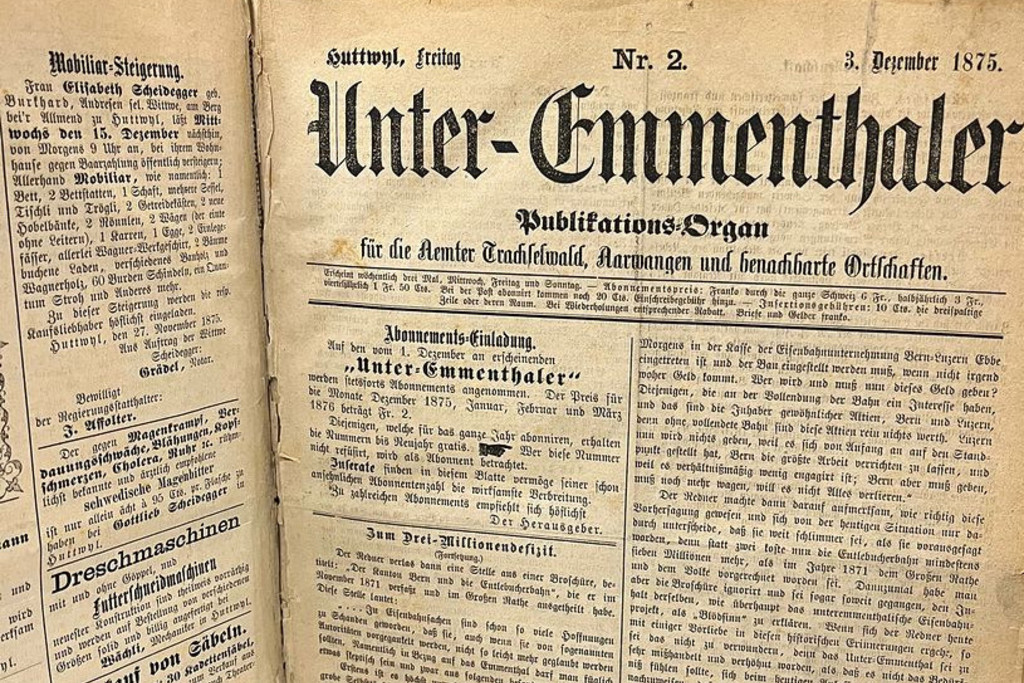When the number of coronavirus infections suddenly increased throughout Switzerland at the start of October, Basel epidemiologist Marcel Tanner said the main reason for this was that Switzerland had not been as restrictive in combating the pandemic as its neighbouring countries: “Now more than ever, every person in society must realise that they share a responsibility for what lies ahead,” he said.The liberal Swiss approach would not work if people failed to observe social distancing and hygiene rules. The situation actually looked good for a while. As businesses cautiously opened their doors again following the lockdown and infections didn’t rise, the Federal Council was quick to announce further easing measures. The feeling of relief was palpable.
“We can handle the coronavirus,” the head of the Federal Department of Home Affairs, Alain Berset, said proudly in May. The President of the Swiss Confederation, Simonetta Sommaruga, coined the phrase “new normality”. The virus had not gone away. However, subject to certain conditions, the old freedoms could be brought back, and industries that suffered during the lockdown could start up again. Back to restaurants, nightclubs and shops. Back to school and the office. Back to mobility and demonstrations. Subject to precautionary measures as well as the mandatory collection of contact details in some cases. This was the “new normality”. Parliament resumed its sessions, and the Confederation handed control back to the cantons in mid-June. The extraordinary situation, which conferred special powers to the federal government under the Epidemics Act, was declared over.
Easy summer
Targeted responses to local coronavirus outbreaks make more sense than blanket measures. That, at least, was the thinking. Switzerland followed a strategy of containment and testing. The cantons developed a track-and-trace system to break infection chains quickly, notifying people who had been in contact with anyone who tested positive for the virus. Cantonal health authorities would order these people to self-isolate, if necessary. Thousands have since been quarantined, including revellers, sportspeople, churchgoers and a federal councillor. After infections started to rise again in June, the government briefly intervened once more – making face coverings compulsory on public transport around the country from July, and telling people returning from high-risk areas to go into quarantine.
Many Swiss opted to spend their summer holidays in Switzerland. The mood was more relaxed than in spring, even without the usual open-air festivals and 1 August celebrations. Demonstrations against the remaining restrictions failed to attract the masses. When the infection rate increased again between July and September, there was no sense of alarm. The figures were still lower than in March and April. There were fewer hospitalisations, and fatalities were significantly down. Nevertheless, scientists issued warnings. Switzerland needed to act now to prevent the situation from deteriorating, said Geneva-based virologist Isabella Eckerle. Some cantons introduced stricter measures, but the government continued to relax restrictions, following through on its plan to lift the ban on big events, for example.
Autumn angst
From October, football and ice hockey matches could take place in front of more than 1,000 fans again. People were also allowed to attend concerts, albeit subject to strict protective measures as well as cantonal approval. At the end of February, Switzerland became the first country in Europe to ban major events with more than 1,000 people. It also became the first country to lift this restriction. “We have to learn to live with the virus,” said Alain Berset. Sports associations and cultural institutions welcomed the move. The majority of cantons would have preferred to wait until the end of the year. All in all, it was a balancing act.
It was also at the beginning of October that cases began to soar. Under 20 people a day had been testing positive at the start of June, whereas the figure stood at over 7,000 by the end of October – a new record. The positive test rate passed the threshold that was set by the World Health Organization (WHO) to gauge whether a country has the pandemic under control. The respite was definitely over, as hospitalisations and fatalities also rose. The national COVID-19 Task Force declared that bringing the numbers down was the “highest priority”. If contact tracing became impossible, there was no knowing how quickly the virus would spread.
Lack of data
The number of infections was expected to increase as temperatures dropped, given that people would spend more time indoors. But so many cases so soon? How could that have happened to Switzerland, a country that had managed so well thus far? “We are worse off than other countries now,” admitted Berset. The finger-pointing began. Switzerland’s decentralised, federal system was not equipped for the pandemic. Voices inside and outside parliament called on the government to intervene and take charge of the situation. Certainly, the cantons applied the face covering requirement in a rather hotchpotch fashion across the country. The forwarding of track-and-trace data to the government could also have been handled better. As a result, experts had no access to the data that would have allowed them to find out where people were contracting the virus.
A cavalier attitude also crept in among certain sections of the population. It was as if people had only listened to the second word of Simonetta Sommaruga’s “new normality”. Scientists also made various statements – and were perfectly entitled to do so. But this actually had the effect of diluting the overall message to the public. The federal government and cantons called on people to adhere strictly to the rules to avoid a second lockdown. “It is five to midnight again,” warned Sommaruga. Uncertainty reigned again long before winter’s first snowfall. People could maybe celebrate Christmas together in the forest, as they used to do as scouts, suggested epidemiologist Marcel Tanner.
This article covers developments up to the time of going to press in mid-October. Up-to-date reports from the Swiss COVID-19 Task Force are available online in three languages at: www.ncs-tf.ch












Comments
Comments :
Thailand , die Zahlen : bis jetzt 60 Tote gemeldet auf ca 70 Millionen Einwohner ; 4290 mit Covid-19 angesteckte Personen . Aber zu welchem Preis ? Absoluter lockdown mit geschlossenen Grenzen . Millionen von Arbeitslosen in der Touristik Sparte . Die Zunahme der Kleinkrimialitaet und der Ueberschuldung der Bevoelkerung . Wollen sehen wenn naechstes Jahr mit der grossflaechigen Impferei begonnen und der Verbreitung des Virus Einhalt geboten wird , und die Lage sich etwas stabilisiert .
Voir juste un peu plus loin que le foie gras, la bûche aux marrons et l Alka Selzer qui suit le dernier Armagnac, whaooo! Je vais m en inspirer !
La Fête , au bord de la mer, sur les plages ou criques magnifiques mais désertes ....
un pic nic de Noël des expats-amis en Catalogne. Merci pour cet article inspirant - le soleil à juste l obligation d être de la party. - juste ça! Et un anorak
Léger, mais quand même....